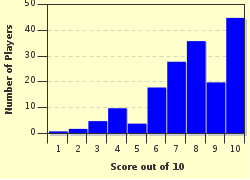Quiz Answer Key and Fun Facts
1. What European country was Sartre from?
2. Sartre was an extremely important figure in the development of which of the following philosophical schools?
3. Sartre used many creative concepts in his philosophy, one of which is absolutely vital to his view of humanity. Which of the following is a famous three word concept of his which he explicitly states and explains in his work "L'existentialisme est un humanisme"?
4. Which work of 1943 is one of Sartre's most famous philosophical works and is subtitled "An Essay on Phenomenological Ontology"?
5. Sartre was always interested in seducing beautiful ladies. He entered an open relationship and lifelong friendship with which other thinker and social figure?
6. Sartre spent two years as a prisoner of war after being captured by German troops.
7. Sartre was an accomplished philosopher, literary critic, novelist, political activist and playwright. Which of his plays spawned the famous quote "Hell is other people" ("l'enfer, c'est les autres")?
8. Which of the following thinkers was not a personal acquaintance of Sartre's at some time or another?
9. Sartre took many drugs, including psychoactives and hallucinogens.
10. Which of the following was ultimately responsible for Sartre's death?
Source: Author
I-Am-A-Car
This quiz was reviewed by FunTrivia editor
bloomsby before going online.
Any errors found in FunTrivia content are routinely corrected through our feedback system.

